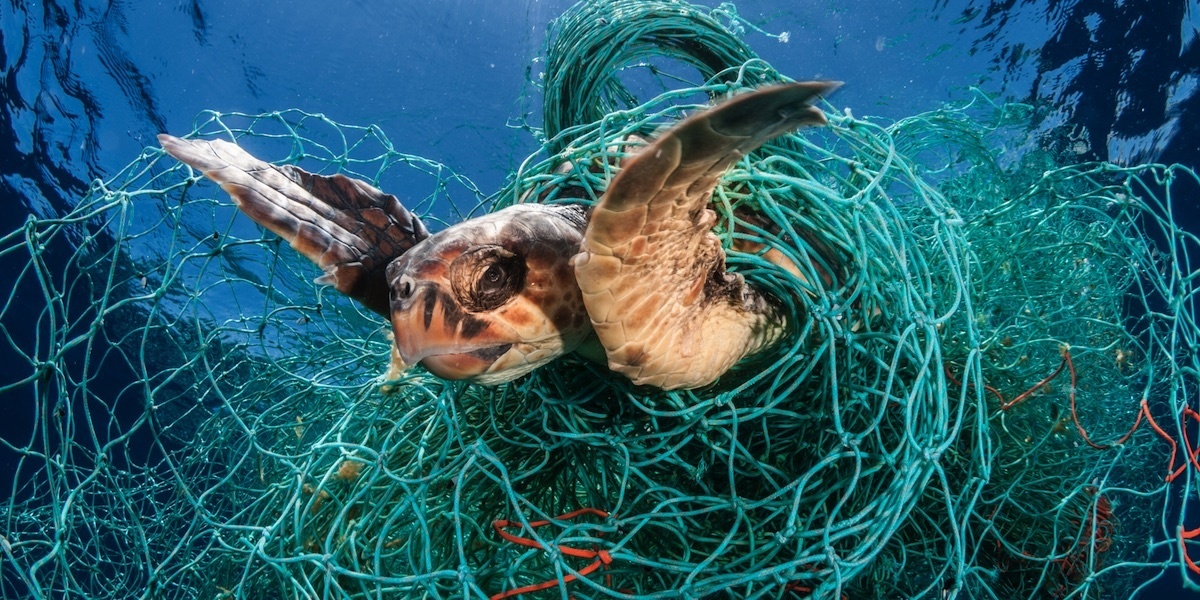

Governments around the world are waking up to the
scourge of plastics on our oceans and its creatures by banning items such as shopping bags and drinking straws. But an often-overlooked form of plastic waste is also a major threat to our seas: “ghost” gear.
A report released Thursday from
World Animal Protection highlights that every year 640,000 metric tons of fishing nets are lost or discarded in our oceans each year, trapping and killing countless marine mammals, including endangered whales, seals and turtles. Shallow coral reef habitats also suffer further degradation from the gear, which can take up to 600 years to decompose.
“Worryingly, the level of ghost gear has increased in recent years and it is likely to grow further as fishing efforts intensify all over the world,” said Deputy Prime Minister Didier Reynders of Belgium, a partner of World Animal Protection’s
Global Ghost Gear Initiative that’s aiming for ghost-gear-free seas.
Ghost Gear kills millions of animals a year & causes great suffering to many more. Heartbreakingly, many beautiful whales, turtles & dolphins are among their number. You can help us persuade supermarkets to take action to stop this by signing our petition https://t.co/bB4yXD6FpM pic.twitter.com/0S7WdfkRDb
— World Animal Protection UK (@MoveTheWorldUK) March 1, 2018
Unfortunately, World Animal Protection’s report, Ghosts beneath the waves, finds that most of the seafood industry’s biggest companies are not doing enough to address deadly fishing gear.
The report ranked 15 seafood giants and their approaches to fishing equipment on a 1 to 5 scale, but found that none of the companies ranked in the top two categories of “setting best practice” or have responsible handling of their fishing gear as “integral to business strategy.”
The results also showed that 80 percent of the assessed companies do not have a clear position on ghost fishing gear nor do they even publicly acknowledge the issue.
However, the report exemplified Seattle-based Trident Seafoods for actively working to collect and transport derelict fishing nets from Dutch Harbor, Alaska. These end-of-life fishing nets are removed, bundled and transported to Denmark for recycling by GGGI participant Plastix.
Tuna suppliers Tri Marine is also collaborating with the Global Ghost Gear Initiative to trial and implement best practices for the use of their biodegradable Fish Aggregating Devices.
The report concludes that companies who join the Global Ghost Gear Initiative perform better at addressing ghost gear in their supply chains and contribute to the delivery of the United Nation’s Sustainable Development Goals.

 233k
233k  41k
41k  Subscribe
Subscribe 
